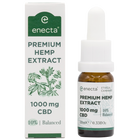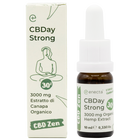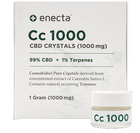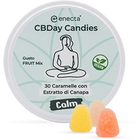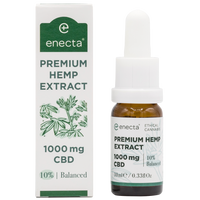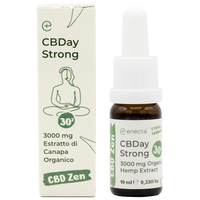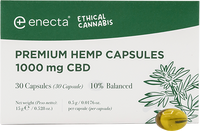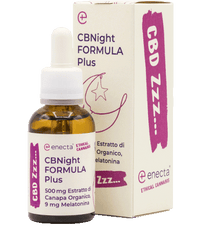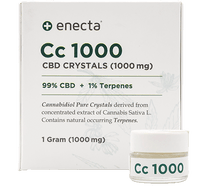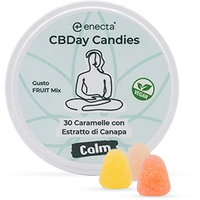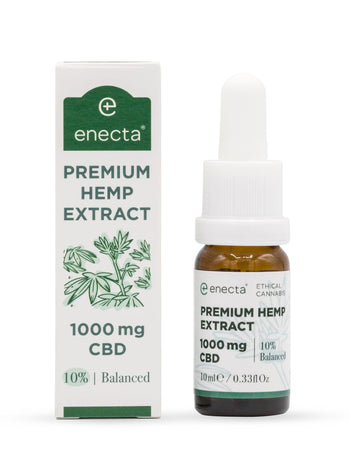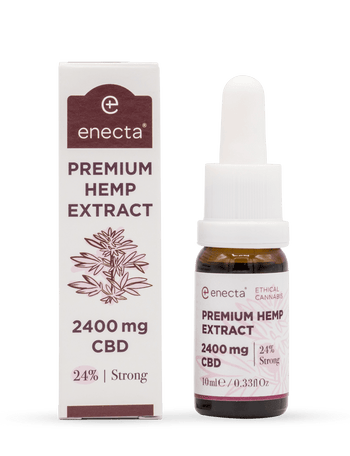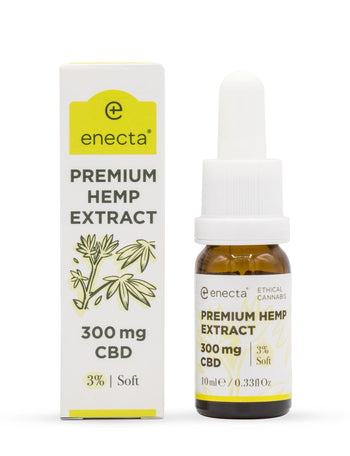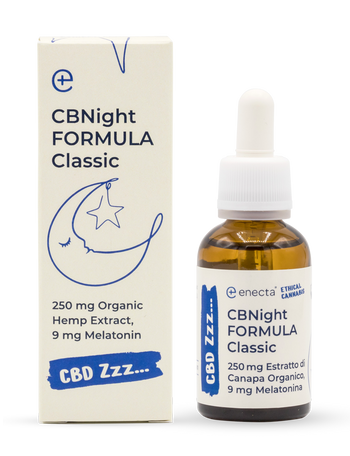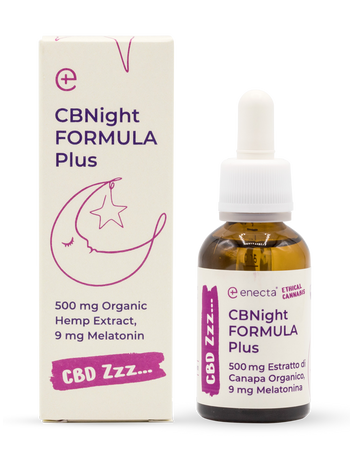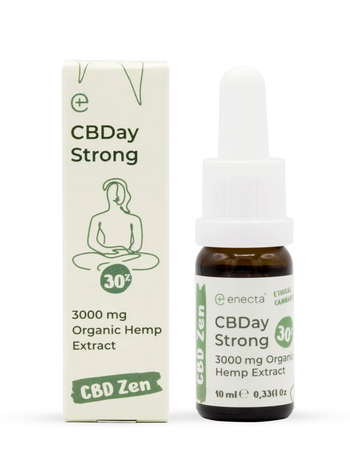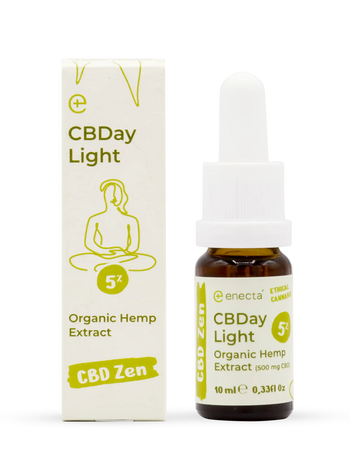Dive into the world of myrcene, a terpene found in many plants and essential oils, known for its earthy, spicy aroma. Its calming, anti-inflammatory, and pain-relieving properties make myrcene a valuable component in aromatherapy, perfumery, and medicine.
What Are Terpenes?
Terpenes are aromatic compounds found in plants and some insects. They emit a distinctive aroma that serves to deter herbivores from consuming the plant. People often associate terpenes, unknowingly, with cannabis because it contains a high concentration of these compounds. Terpenes are largely responsible for the unique smell of the cannabis plant.
In addition to their aroma, terpenes are also believed to have positive physiological and therapeutic effects. There are many different types of terpenes found in a single cannabis strain, such as linalool, limonene, pinene, caryophyllene, and myrcene.
Each terpene offers specific benefits for the body. Some have anti-inflammatory, pain-relieving, anxiolytic, or antidepressant properties. The most well-known and commonly occurring terpene is myrcene, which is found in most cannabis strains.
What is Myrcene?
Myrcene, also known as myrcenol, is a naturally occurring terpene found in numerous plants and essential oils. It is renowned for its distinctive aromatic scent, often described as earthy, spicy, or herbal. Myrcene is an essential component of the essential oils of many plants such as hops, thyme, basil, mangoes, and bay leaves.
Key Properties and Applications of Myrcene
Aroma Profile
Myrcene has a strong, musky, earthy scent with a sweet undertone. This distinctive aroma is highly valued in perfumery and aromatherapy. Perfumers appreciate it for its ability to create complex fragrance compositions that are both calming and refreshing.
Use in Perfume Manufacturing
Due to its characteristic fragrance, myrcene is frequently used in the production of perfumes and fragrances. It imparts a deep, earthy base note to perfumes, harmoniously complementing other scents and enhancing their longevity.
Medicinal Properties
Myrcene is attributed with a variety of medicinal effects, including anti-inflammatory, analgesic (pain-relieving), and sedative properties. These effects make it a potential component of natural remedies and therapeutic applications, particularly in the treatment of chronic pain and inflammation.
Synergy with Other Terpenes
A notable feature of myrcene is its ability to enhance the effects of other terpenes and cannabinoids. When combined with plants such as cannabis, myrcene can increase the permeability of the blood-brain barrier, facilitating the absorption of other chemical compounds. This can optimize the efficacy of cannabinoids like THC and CBD, leading to a more potent and effective impact.
Presence in Foods
Myrcene is also found in some foods, particularly mangoes. It contributes to the characteristic aroma of these fruits and is responsible for the sweet, musky scent that makes mangoes so distinctive. Additionally, consuming myrcene-rich foods is believed to enhance the effects of cannabinoids in the body.
Due to its diverse properties and applications, myrcene is valued in various industries, from perfumery to the food industry and medical research. It is a versatile terpene that stands out not only for its unique scent but also for its potential health benefits. Whether used in aromatherapy for relaxation, in perfumes for a distinctive fragrance, or in therapeutic applications for pain relief and anti-inflammatory effects, myrcene offers numerous possibilities and advantages.
What Properties Does Myrcene Have?
Myrcene possesses a variety of chemical and biological properties that make it a useful component in various applications.
Chemical Properties
Chemical Structure
Myrcene is an acyclic monoterpene composed of two isoprene units. With the chemical formula C10H16, it has a simple yet effective structure responsible for its diverse properties.
Boiling Point
Myrcene has a boiling point of approximately 166–168 °C. This property is particularly important in perfumery and aromatherapy, as it facilitates the processing and use of myrcene in various products.
Solubility
Myrcene is well-soluble in organic solvents like ethanol and diethyl ether, but poorly soluble in water. These solubility properties influence its application areas, particularly in the cosmetics and food industries.
Reactivity
Myrcene is relatively reactive and can be easily oxidized. The oxidation products of myrcene are also used, especially in the perfume industry, where they contribute to creating complex fragrance profiles.
Biological Properties
Anti-inflammatory
Myrcene exhibits anti-inflammatory properties that can help reduce swelling and inflammation. This makes it a potential agent in the treatment of inflammatory diseases.
Analgesic (Pain-relieving)
The pain-relieving properties of myrcene allow its use as a natural painkiller. This is especially valuable for people seeking alternative treatments for chronic pain.
Sedative
Myrcene has calming effects and can be helpful in alleviating anxiety and insomnia. Its sedative properties make it a popular component in aromatherapy products.
Antioxidant
As an antioxidant, myrcene can help prevent cell damage caused by free radicals. This property is important for cell protection and health, making myrcene a valuable component in health and beauty products.
Antimicrobial
Myrcene possesses antimicrobial properties that can inhibit the growth of certain bacteria and fungi. This property extends its applications in medicine and antimicrobial products.
The unique chemical and biological properties of myrcene make it a versatile compound valued in various industries, from perfumery and food production to medical and pharmacological research.
In Which Diseases Can Myrcene Be Used?
Due to its diverse biological effects, myrcene is being researched for the treatment of various diseases and health conditions. Here are some ailments and conditions where myrcene might be beneficial:
Inflammatory Diseases
Arthritis
Thanks to its anti-inflammatory properties, myrcene could help alleviate symptoms of inflammatory joint diseases such as arthritis. Reducing swelling and pain can significantly improve the quality of life for those affected.
Inflammatory Bowel Diseases
In conditions like Crohn's disease and ulcerative colitis, myrcene could be helpful. Its ability to reduce inflammation in the gastrointestinal tract provides natural support in managing these chronic conditions.
Pain Conditions
Chronic Pain
Myrcene has analgesic (pain-relieving) properties that could play an important role in treating chronic pain. Whether it's back pain, joint pain, or migraines, myrcene could serve as a natural pain reliever.
Fibromyalgia
Patients with fibromyalgia often suffer from widespread pain and tender points. Myrcene, with its pain-relieving effects, could offer valuable support and help alleviate the discomfort of those affected.
Neurological Disorders
Anxiety and Sleep Disorders
The calming properties of myrcene could be particularly useful in treating anxiety and insomnia. A relaxed body and mind contribute to better sleep and overall improved mental health.
Epilepsy
There is evidence that myrcene may have anticonvulsant effects. This property could be beneficial in treating epilepsy by reducing the frequency and severity of seizures.
Cancer
Pain Management in Cancer
Cancer patients could benefit from myrcene, as it can help alleviate pain and improve the quality of life. The pain-relieving properties of myrcene provide a natural complement to conventional pain therapies.
Antitumor Effects
Some studies suggest that myrcene might inhibit the growth of certain cancer cells. Although further research is needed, these early results show promising potential in cancer treatment.
Respiratory Diseases
Asthma
The anti-inflammatory properties of myrcene could help reduce inflammation and improve respiratory function in asthma. Better airway function means less shortness of breath and improved quality of life for asthmatics.
Infectious Diseases
Bacterial and Fungal Infections
Due to its antimicrobial properties, myrcene could help treat infections caused by bacteria and fungi. This property makes it a natural alternative or complement to conventional antimicrobial agents.
Antioxidative Effects
Cardiovascular Health
The antioxidant properties of myrcene could contribute to promoting cardiovascular health. By combating free radicals, it can reduce the risk of heart disease and support overall heart health.
It is important to emphasize that most of these potential applications are still under research. Further studies are required to confirm the efficacy and safety of myrcene in treating these diseases. Always consult a doctor or qualified health expert before using it as a therapeutic measure.
How Does Myrcene Interact With Other Cannabinoids?
Myrcene plays a crucial role in the interaction with cannabinoids, particularly through the synergy often referred to as the "entourage effect." The entourage effect describes the phenomenon where the combination of different cannabinoids and terpenes in cannabis produces stronger or different effects than the individual components alone. Here are some specific ways myrcene can work in combination with cannabinoids:
Increased Blood-Brain Barrier Permeability
Myrcene is known to increase the permeability of the blood-brain barrier. This means it can facilitate the uptake of cannabinoids like THC and CBD into the brain. As a result, the effects of these cannabinoids can be enhanced, leading to a more intense and quicker onset of action. For consumers, this may mean experiencing stronger and faster relaxation or pain relief.
Enhancement of Sedative Effects
Myrcene has sedative properties that, when combined with cannabinoids like CBD, can enhance the calming and relaxing effects. This can be particularly beneficial for people using cannabis to alleviate anxiety, insomnia, or stress. The synergistic effect of myrcene and CBD can lead to profound relaxation and improved sleep quality.
Augmentation of Pain-Relieving Effects
Both myrcene and cannabinoids like THC and CBD have pain-relieving properties. When combined, they can potentially produce a stronger analgesic effect, making them particularly useful for treating chronic pain and inflammatory diseases. This enhanced pain relief can help patients manage their pain more effectively and improve their quality of life.
Synergy with CBD
The interaction between myrcene and CBD is particularly noteworthy. Myrcene can enhance the relaxing and anxiolytic effects of CBD, meaning that lower doses of CBD might be needed to achieve the desired effect. This property makes myrcene a valuable component for those looking to maximize the therapeutic benefits of CBD without having to consume high doses.
Anti-Inflammatory Effects
The anti-inflammatory properties of myrcene, in combination with the similar effects of cannabinoids, can lead to a stronger reduction of inflammation. This can be beneficial in treating inflammatory diseases such as arthritis or inflammatory bowel diseases. The combination of myrcene and cannabinoids can fight inflammation more efficiently and provide noticeable relief to patients.
Antimicrobial Synergy
Both myrcene and certain cannabinoids have antimicrobial properties. Their combination could therefore provide a more effective defense against certain bacterial and fungal infections. This can be particularly useful in treating infections where traditional antibiotics are less effective.
Prolongation of Effects
Myrcene is believed to prolong the duration of cannabinoids' effects in the body, potentially leading to longer-lasting effects. This can be advantageous for users who prefer sustained relief, especially in pain management or the alleviation of chronic conditions. A longer duration of action means less frequent dosing and more consistent symptom relief.
The interaction between myrcene and cannabinoids highlights the importance of the entourage effect, where the combined effects of multiple cannabis components can lead to enhanced therapeutic benefits. However, it is essential to consult with a healthcare professional before using myrcene or cannabis-based products for therapeutic purposes.
Which Cannabis Strains Have More Myrcene?
Indica-dominant strains and some hybrids often have higher myrcene concentrations compared to Sativa strains. These strains are valued for their ability to reduce stress, promote sleep, and provide a deep sense of relaxation. Below are some of the most well-known cannabis strains typically high in myrcene:
Granddaddy Purple (GDP)
This popular Indica strain is notable for its high myrcene content, which contributes to its calming and sleep-inducing effects. It is often used by people seeking an effective solution for sleep disorders.
OG Kush
This well-known hybrid strain is also known for its high myrcene content. OG Kush is appreciated for its relaxing and stress-relieving properties, making it a preferred choice for those looking to manage stress.
Blue Dream
As a hybrid strain with both Sativa and Indica characteristics, Blue Dream often contains high levels of myrcene. This strain offers a balanced effect that can be both relaxing and invigorating.
AK-47
This popular hybrid strain is known for its high myrcene content and versatile effects. AK-47 can be both relaxing and stimulating, making it a flexible option for various needs.
Grape Ape
This Indica-dominant strain is famous for its high myrcene content and deeply relaxing effects. Grape Ape is ideal for those seeking profound relaxation and stress relief.
These strains are highly valued for their therapeutic effects, largely due to their myrcene content, which enhances their calming, analgesic, and anti-inflammatory properties.
FAQ On Myrcene And Its Effects
In this section, you'll find answers to frequently asked questions about the use of myrcene. This natural compound offers a variety of health benefits and applications, which are increasingly being studied and recognized by both the scientific community and the public. Our goal is to help you gain a better understanding of the potential uses, effects, and general aspects of myrcene.
Are Terpenes Like Myrcene Cannabinoids?
No, terpenes are not cannabinoids. Both are natural compounds found in the cannabis plant, but they have different chemical structures and functions. Terpenes are responsible for the aromas and scents of the plant, while cannabinoids such as THC and CBD have pharmacological effects and interact with the endocannabinoid system in the human body.
Is Myrcene safe for use in pets?
Generally, myrcene is safe for pets when used in small amounts and in an appropriate form. In veterinary medicine, it can help reduce stress and anxiety in pets. However, it is crucial to follow the correct dosage and consult a veterinarian beforehand to avoid potential side effects.
Are Terpenes like Myrcene legal?
Yes, terpenes are legal in most countries as they are found in many plants and foods and do not have psychoactive effects. They are commonly used in aromatherapy, perfumery, and the food industry. However, the legality can vary depending on the specific terpene and its application, so it is advisable to check local regulations.
How is Myrcene used in sports medicine?
In sports medicine, myrcene is used for its anti-inflammatory and pain-relieving properties. It can help alleviate muscle soreness and promote recovery after intense training sessions. Myrcene can be applied in the form of massage oils or balms that are applied to aching muscles and joints.
Are there potential side effects with its use?
Generally, myrcene is safe when used in appropriate amounts. However, some individuals may experience side effects such as skin irritation or allergic reactions, especially with topical application. It is important to test it on a small area of skin first and discontinue use if any side effects occur. If in doubt, consult a doctor or dermatologist.

